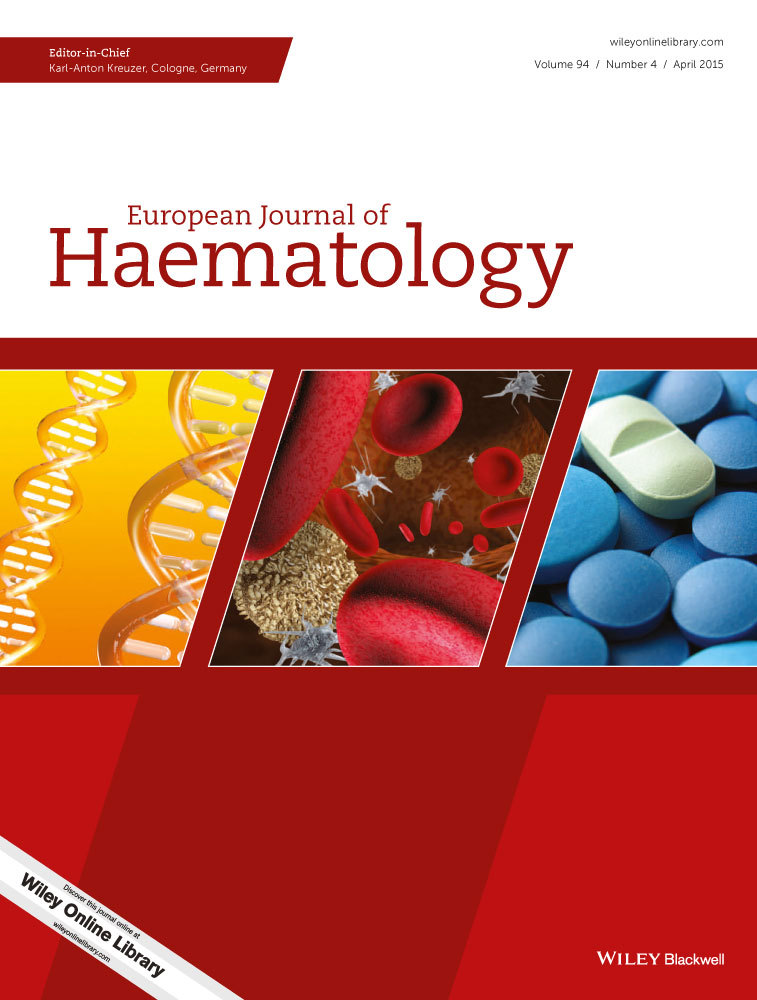LDH is an adverse prognostic factor independent of ISS in transplant-eligible myeloma patients receiving bortezomib-based induction regimens
Abstract
Background
Serum lactate dehydrogenase (LDH) has been an adverse prognostic factor for myeloma but does not feature in the International Staging System (ISS). We examined whether elevated serum LDH at diagnosis remains an adverse risk factor independent of ISS for survivals transplant-eligible myeloma patients receiving early/frontline bortezomib-based induction, followed by autologous stem cell transplantation (ASCT).
Patients
Seventy-seven transplant-eligible Chinese patients received three induction regimens [staged approach (N = 25), PAD (N = 19), VTD (N = 33)], followed by ASCT and thalidomide maintenance.
Results
Five-year overall (OS) and event-free (EFS) survivals were 66.4% and 36.2%. There was no difference in demographics, complete remission/near complete remission (CR/nCR rates postinduction or ASCT, and survivals among patients induced by the three induction regimens. Elevated LDH was associated with male gender (P = 0.006), ISS III (P = 0.042) and serum β2-microglobulin (P = 0.040). Univariate analysis showed that elevated LDH, ISS III, high β2-microglobulin, and failure to attain CR/nCR post-ACST were risk factors adversely impacting both OS and EFS. Multivariate analysis showed that elevated LDH was the only factor impacting both OS (P = 0.007) and EFS (P = 0.008).
Conclusion
In this uniformly treated cohort of transplant-eligible myeloma patients, elevated serum LDH is an adverse risk factor independent of ISS for both OS and EFS. Bortezomib-based induction/ASCT regimen had not abolished the adverse impact of elevated LDH.




